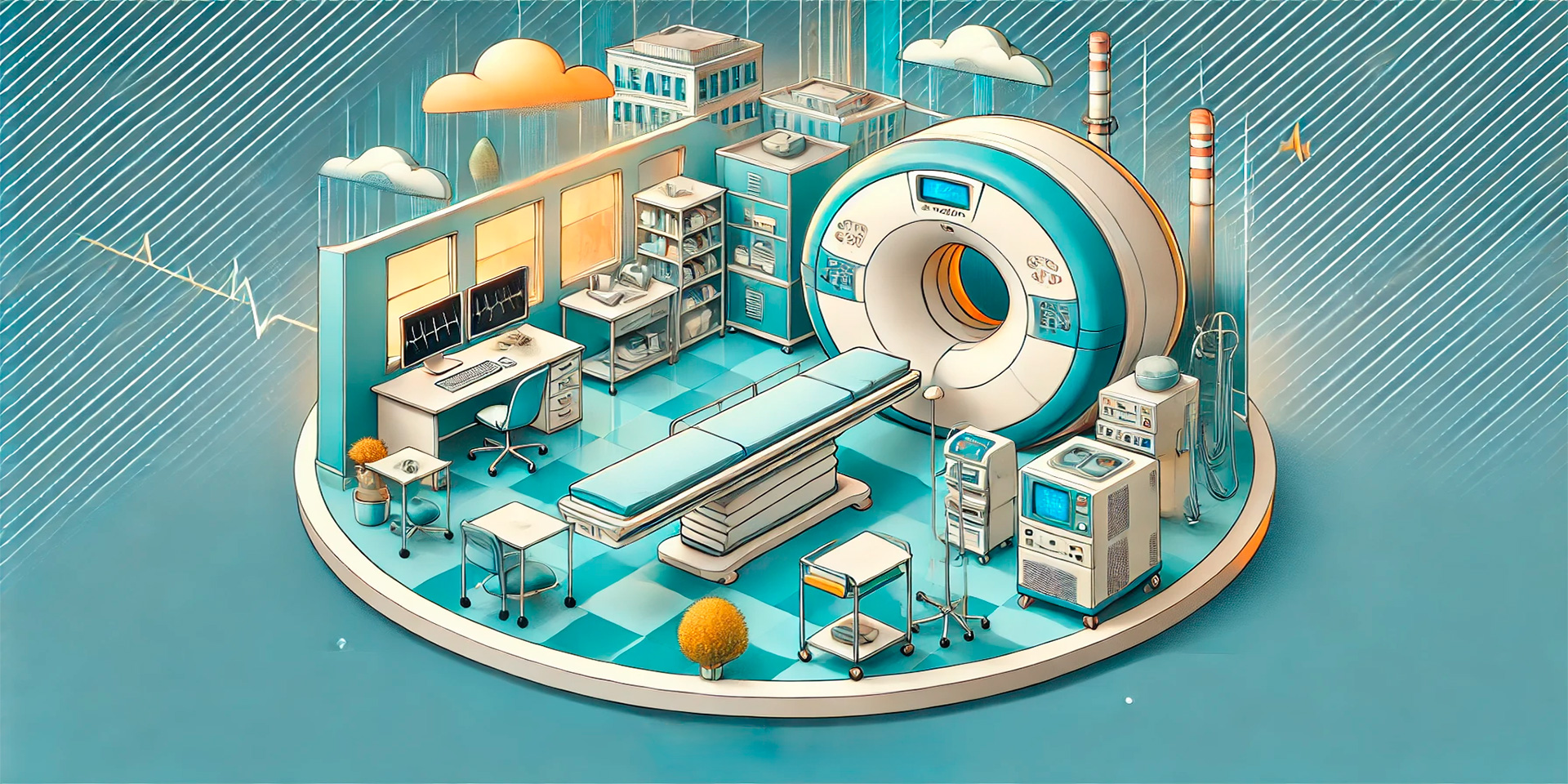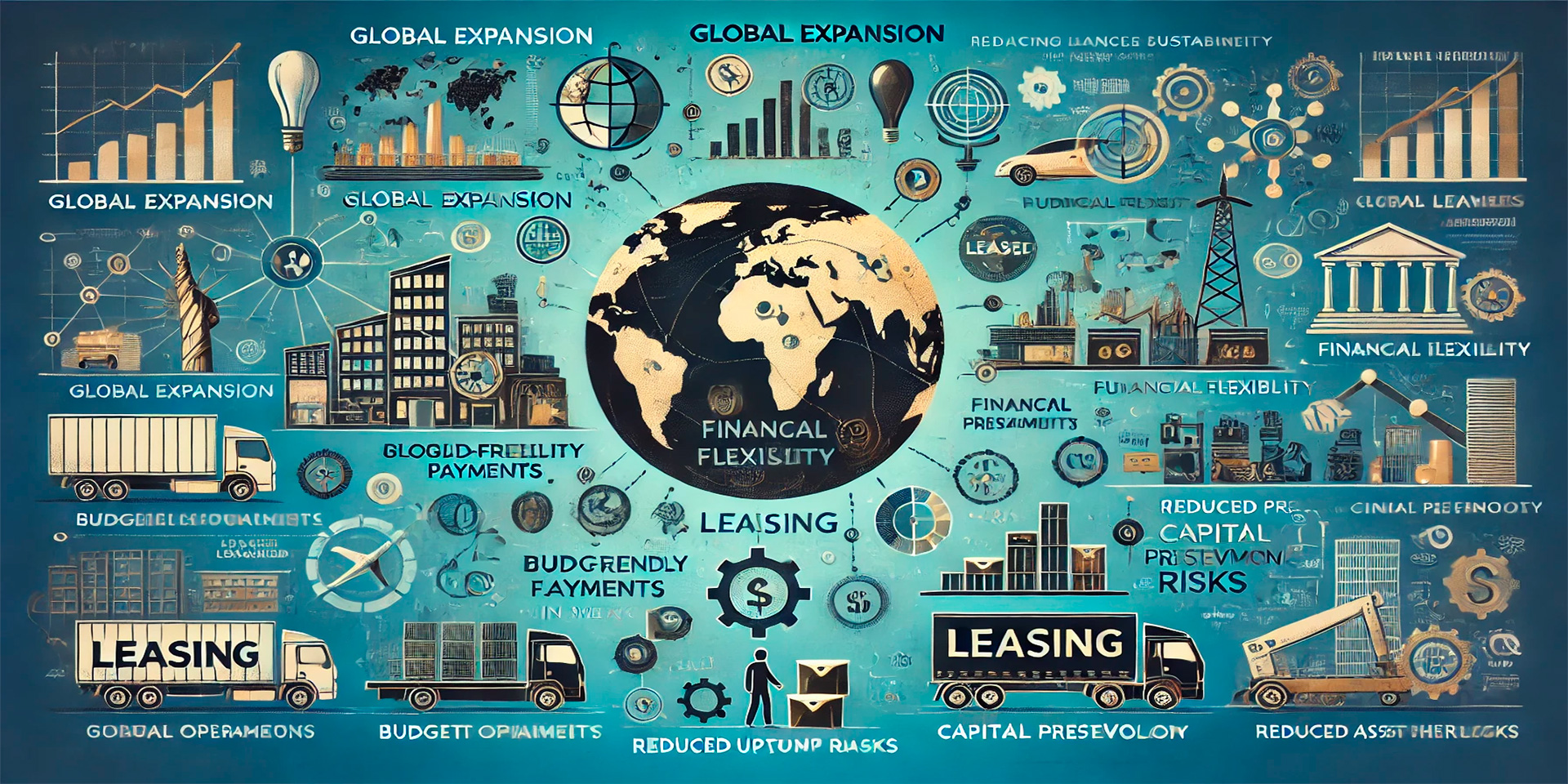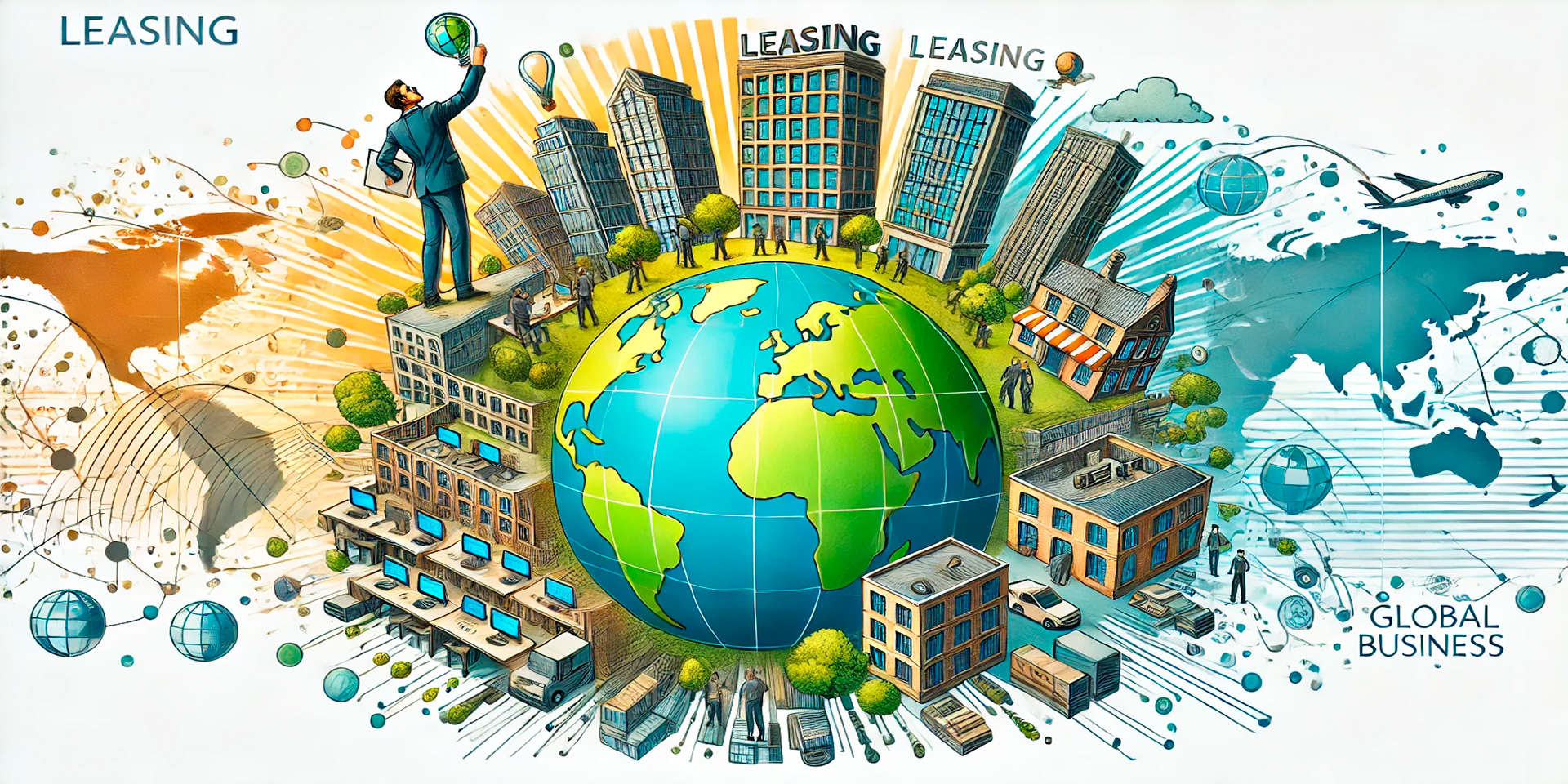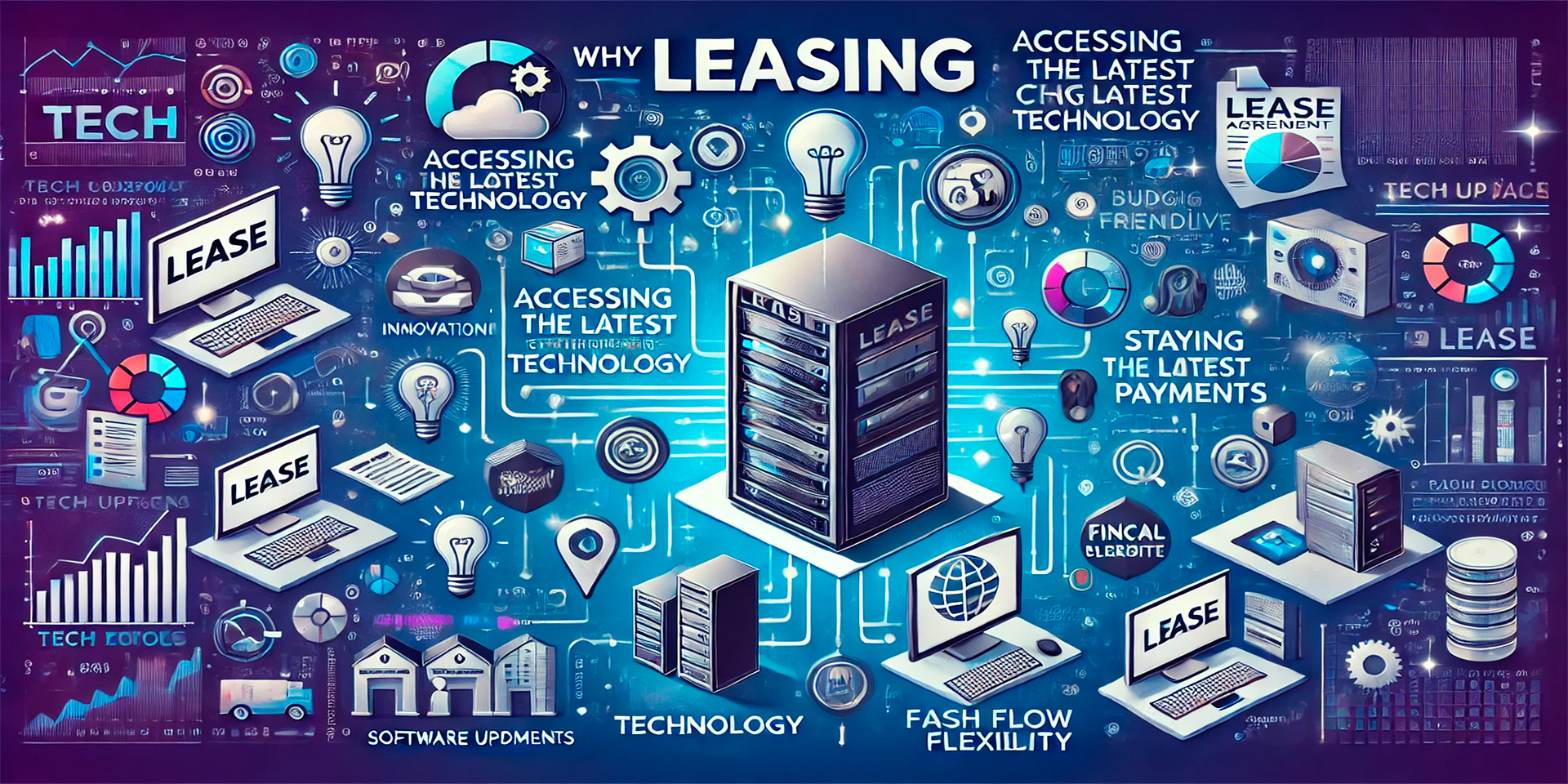
Why Leasing is Essential for Tech Companies: Access the Latest Technology with Financial Flexibility
In the fast-paced world of technology, staying ahead of the curve is essential for success. Tech companies must continuously adopt new tools, software, and hardware to remain competitive and meet the evolving demands of the industry. One of the key strategies tech businesses use to keep up with rapid advancements is leasing equipment. By leveraging leasing, tech companies can access the latest technology without the substantial upfront costs of purchasing, enabling them to stay agile and innovate faster.
Leasing offers numerous benefits for tech businesses, from maintaining cutting-edge infrastructure to managing cash flow and reducing the risk of obsolescence. As the technology landscape changes rapidly, leasing provides the flexibility and financial efficiency tech companies need to stay competitive.
Access to the Latest Technology
In an industry where innovation happens at lightning speed, owning equipment can quickly become a liability. Technology that was state-of-the-art a few years ago can rapidly become outdated, affecting a company’s efficiency and ability to compete. Leasing allows tech companies to continuously upgrade to the latest hardware, software, and equipment, ensuring they always have access to cutting-edge technology.
For instance, leasing computer servers, networking equipment, or high-performance workstations allows tech businesses to upgrade frequently without the financial strain of purchasing new equipment outright. When a lease term ends, companies can seamlessly transition to newer models, keeping their operations running at peak efficiency without worrying about the depreciation of older assets.
This constant access to the latest tools allows tech companies to enhance their productivity, reduce downtime, and stay at the forefront of technological trends, positioning them for long-term success.
Flexibility and Scalability
Tech companies, particularly startups and growing firms, often experience fluctuations in demand as they scale their operations. Leasing provides the flexibility to quickly adapt to changing business needs without the commitment of long-term ownership. As the company grows, leasing makes it easy to scale up by adding more equipment, whether it’s additional servers, workstations, or specialized hardware for new projects.
For tech startups in particular, leasing can be a game-changer, as it allows them to access the equipment they need to get off the ground without large upfront investments. This flexibility also extends to payment terms and lease durations, offering companies more control over their financial commitments.
Leasing also makes it easier to downsize when necessary. In times of reduced demand or market uncertainty, tech companies can return leased equipment at the end of the lease term, avoiding the financial burden of owning equipment that is no longer needed.
Improved Cash Flow Management
Maintaining a healthy cash flow is critical for tech companies, especially those in the early stages of growth. Large upfront investments in technology infrastructure can strain a company’s financial resources, leaving little room for other operational needs like hiring talent, marketing, or research and development.
Leasing offers a solution by turning large capital expenditures into manageable monthly payments. This improves cash flow management by spreading out the cost of equipment over time, allowing tech companies to allocate resources more effectively. The predictable payments associated with leasing also make it easier to budget and plan for future expenses, reducing financial uncertainty.
By leasing instead of purchasing, tech companies can preserve their working capital and use it for other growth initiatives, such as expanding their product offerings, developing new services, or entering new markets.
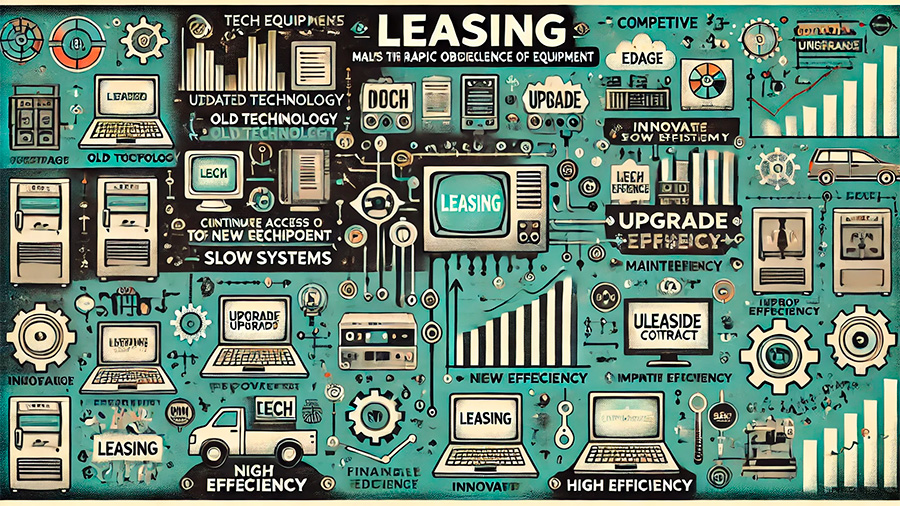
Reducing the Risk of Obsolescence
One of the biggest challenges for tech companies is the rapid obsolescence of equipment. As technology evolves, older equipment becomes less efficient, slower, and incompatible with newer systems. This not only reduces productivity but also increases the cost of maintenance and repairs.
Leasing mitigates this risk by allowing companies to replace outdated equipment at the end of the lease term. Instead of owning technology that quickly loses value, tech companies can upgrade to the latest models, ensuring they are always operating with the most efficient and powerful tools available.
This continuous access to new technology also gives tech companies a competitive edge. They can adopt the latest innovations and integrate them into their operations without the financial burden of purchasing and maintaining obsolete equipment.
Maintenance and Support Included
Many leasing agreements for tech equipment come with maintenance and support services included, further reducing the burden on the company. Instead of having to manage repairs, upgrades, or troubleshooting internally, leasing agreements often cover these services as part of the package. This is particularly valuable for tech companies that rely on uninterrupted performance from their equipment.
By having maintenance included in the lease, companies can minimize downtime caused by technical issues and ensure that their operations run smoothly. This arrangement not only reduces operational disruptions but also eliminates the need to allocate additional resources to managing repairs or replacements.
Tax Benefits of Leasing
Leasing equipment can also provide tax advantages for tech companies. In many cases, lease payments are treated as an operating expense, which means they can be deducted from taxable income. This provides immediate financial relief compared to purchasing equipment, where only depreciation is deductible over time. By reducing taxable income, leasing can help tech companies optimize their tax strategy while still benefiting from the use of advanced technology.
However, it’s important to consult with a tax advisor to fully understand the tax implications of leasing and how to maximize the benefits for your business.
Leasing as a Growth Strategy
For tech companies, leasing is more than just a financial decision—it’s a strategic approach to growth. By providing access to the latest technology, improving cash flow, and offering flexibility in scaling operations, leasing allows tech businesses to focus on innovation and market expansion without the financial constraints of ownership. As competition in the tech industry continues to intensify, the ability to adapt quickly and stay ahead of technological advancements is crucial for success.
By choosing to lease rather than buy, tech companies can remain agile, respond to new opportunities, and maintain a competitive edge in a constantly evolving landscape.
Conclusion
Leasing equipment offers significant advantages for tech companies looking to stay ahead of the curve. From gaining access to the latest technology and maintaining financial flexibility to reducing the risk of obsolescence, leasing provides tech businesses with the tools they need to grow and thrive. With benefits like improved cash flow, tax advantages, and included maintenance, leasing is a powerful strategy for tech companies that want to remain competitive and innovative in a fast-moving industry.

